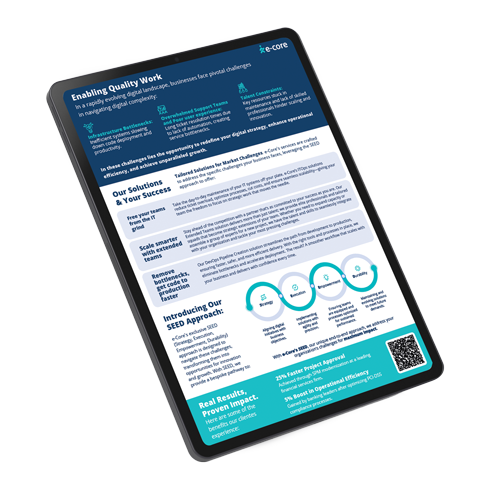How e-Core enables quality work
e-Core • November 1, 2024
Free your team to focus on strategic goals with streamlined IT operations. Our expert solutions reduce ticket overload, enhance support, and optimize your CI/CD processes for faster, more reliable deployments.
Download now to see how we can transform IT into a growth engine for your business. →

e-Core
We combine global expertise with emerging technologies to help companies like yours create innovative digital products, modernize technology platforms, and improve efficiency in digital operations.







